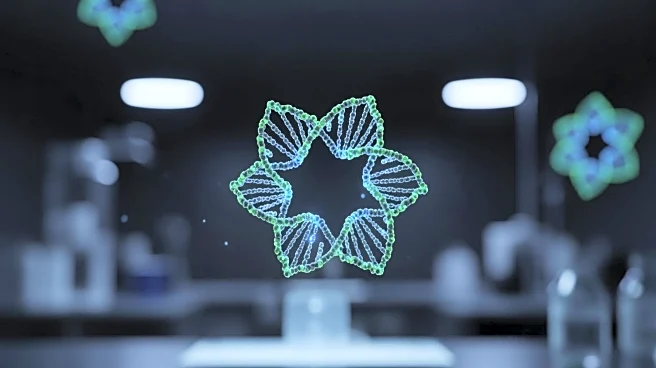Rapid Read • 8 min read
Yooree Kim, a South Korean woman, has filed for compensation from the South Korean government, claiming she was adopted to a French family in 1984 without her biological parents' consent. Her petition follows the recognition by South Korea's truth commission of her and 55 other adoptees as victims of human rights violations, including falsified child origins and lost records. Kim's case was highlighted in an investigation by the Associated Press and FRONTLINE, which revealed that South Korea's government and adoption agencies facilitated the adoption of approximately 200,000 Korean children to overseas parents through questionable means. Kim's lawyer, Choi Jung Kyu, stated that her administrative claim could set a precedent for others seeking compensation without lengthy lawsuits. The government has yet to acknowledge direct responsibility for past adoption practices.
AD
The case of Yooree Kim underscores the broader issues within the international adoption industry, particularly the practices that have historically been used to facilitate adoptions from South Korea. If successful, Kim's claim could pave the way for other adoptees to seek compensation, potentially leading to significant changes in how governments address past adoption practices. The case also highlights the need for accountability and reparations for adoptees who have suffered due to fraudulent documentation and lack of consent. The outcome of Kim's petition could influence public policy and legal frameworks regarding adoption and human rights violations.
The Justice Ministry has four weeks to decide on Kim's request, although there is no obligation to meet this deadline. Kim's petition does not specify an amount, leaving it to the government to propose a sum. She reserves the right to pursue a civil lawsuit against the state if necessary. The case is being closely watched as a measure of the government's willingness to take responsibility for past adoption practices. The fate of other adoptees' cases hinges on whether lawmakers establish a new truth commission through legislation.
The ethical implications of Kim's case highlight the need for transparency and accountability in international adoption practices. The discrepancies in her adoption paperwork reveal systemic issues that have allowed for the exploitation of vulnerable children and families. The case also raises questions about the role of adoption agencies and governments in perpetuating these practices and the need for comprehensive reforms to prevent future violations.
AD
More Stories You Might Enjoy











